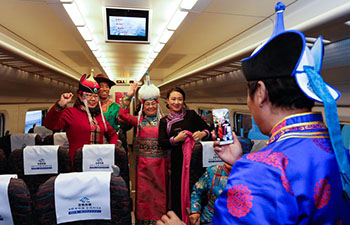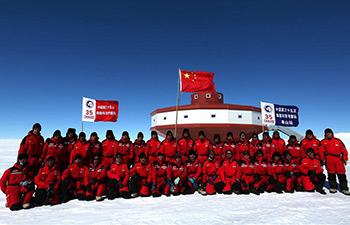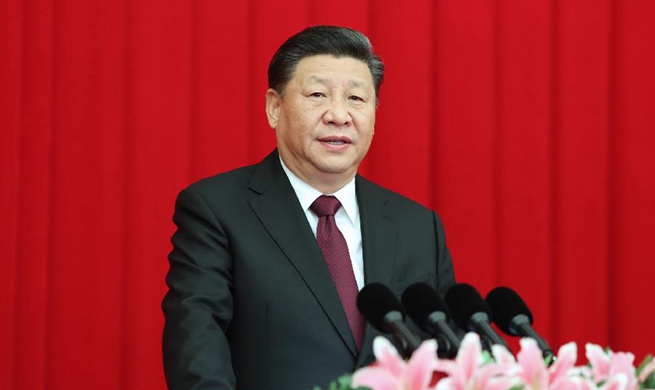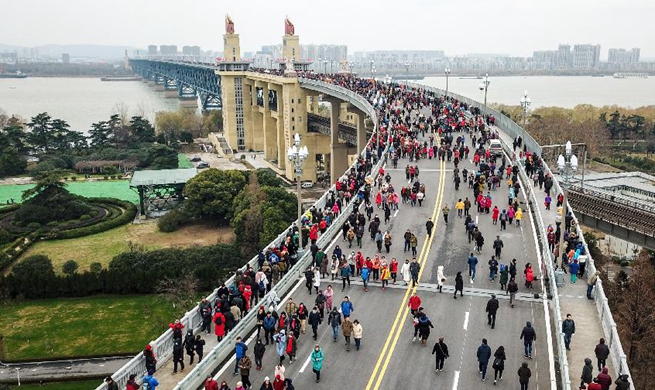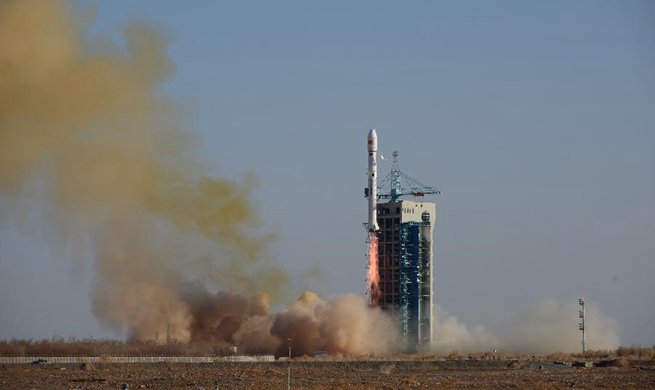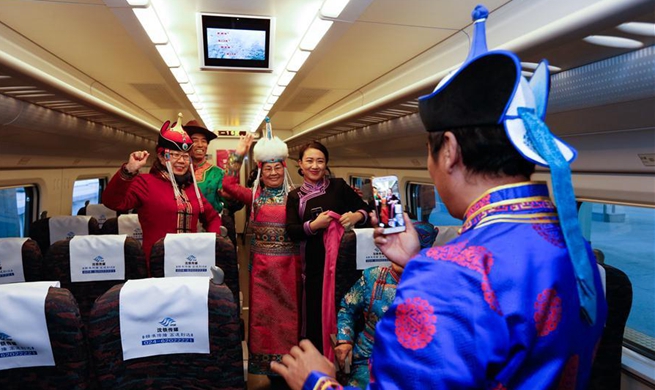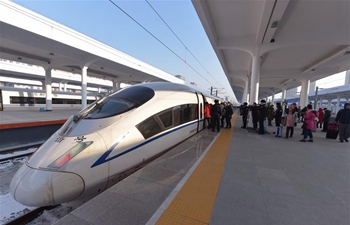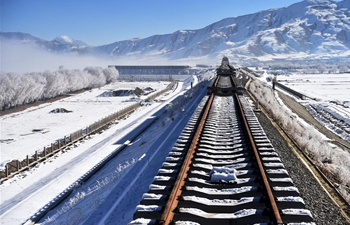by Mao Pengfei, Nguon Sovan
PHNOM PENH, Dec. 29 (Xinhua) -- Lancang-Mekong Cooperation (LMC) could play a bigger role in the protection and development of the Lancang-Mekong river, Cambodian experts and officials said in recent interviews with Xinhua.
Te Navuth, secretary general of the Cambodia National Mekong Committee (CNMC), said that for Cambodia, the main concerns over the Lancang-Mekong river's protection are climate change, natural disasters, irrigation and hydropower development in the basin, rising social demands and expectations for livelihoods, and water, food and energy security.
The official said the LMC mechanism could play a bigger role to address those challenges and Cambodia is committed to cooperation within the platform.
The LMC is a sub-regional cooperation mechanism launched in March 2016 by China, Laos, Cambodia, Myanmar, Thailand and Vietnam, all riparian countries of the river called Lancang or Mekong in the upper reach.
REGIONAL COOPERATION CRUCIAL
Navuth said the Lancang-Mekong river offers development opportunities and cooperation for mainstream and tributary hydropower, irrigation, fisheries, navigation, flood and drought management, tourism and environment.
However, there remain significant challenges such as rapid economic and population growth, increased demand for water, food and energy, urbanization, industrialization, the loss of environmental assets, wetlands and natural fisheries, deforestation, floods and droughts and risks to biodiversity and people's livelihoods, he said.
Navuth said overall wetland areas are decreasing in the region, principally as a result of land use changes prompted by the economic development of the region.
Meanwhile, capture fisheries are under threat with a variety of pressures increasing substantially in recent decades in Cambodia and across all mainstream zones of the Lower Mekong Basin, said Navuth.
"The main pressures are agricultural land development including massive expansion of rice farming and deforestation, intensive fishing pressure, hydropower development, mining, sand mining, urbanization and industrial development and associated pollution," he said.
He said many species remain under threat with a large number of fish, birds, reptiles, amphibians and mammals listed as vulnerable, endangered or critically endangered.
Increasing protection for important natural habitats should over time help support the Lower Mekong Basin's threatened plants and animals, he said.
Marc Goichot, water lead of WWF Greater Mekong Program, said increasingly water pollution is also becoming a threat to the ecological environment of the river.
"The increasing development in the mainstream and tributaries highlight the increasing need for the sustainability and coordinated operational management of tributary and mainstream projects including hydropower," Navuth said.
Seng Teak, country director of WWF Cambodia, said the transboundary nature of the Mekong river implies the importance of a cross-border or integrated river basin approach to govern and manage the river and its resources.
Seng Teak said since the Mekong river and its values and resources are shared, it is necessary to have a functioning regional coordination mechanism to govern and coordinate important decision-making as well as a joint body for sustainable use and management.
"LMC can be an effective and functioning coordination mechanism if it helps to ensure the right balance between economic development and conservation of the river's ecosystems and the benefits it provides," he said.
"In our view, LMC countries should undertake comprehensive assessments of natural capital and the full range of ecosystem services and benefits provided by the entire Mekong River, mapping out properly valued benefits - both monetary and no-monetary - so that we have the necessary information available to help key decision-makers meet their social, economic and environmental goals," he added.
SINO-CAMBODIA COOPERATION UNDER LMC
Navuth said there are needs for transboundary integrated water resources management, water-food-energy security nexus, mainstreaming of climate change and alignment of regional and national efforts in development planning and implementation, the protection against extreme floods and droughts, and the preservation of key environmental assets and livelihood of vulnerable communities.
Navuth said Cambodia appreciates the efforts and cooperation of the Lancang-Mekong Water Resources Cooperation Center that was established in 2017, adding that "under the LMC framework, China is active in leading all the pillars under the cooperation framework, especially the pillar on water resources management."
Navuth said China has shown its very strong commitment and support in jointly managing the river and China has also effectively released water from the upper part during the critical drought years to relieve the water shortage disaster in the downstream.
The CNMC under the framework of the Mekong River Commission (MRC) will extend full cooperation with LMC, said Sok Siphana, chairman of the National Secretariat of Cambodia for LMC.
He said comparing with other riparian countries of the Lancang-Mekong river, Cambodia is still limited in the terms of technical and financial capacity for the development of water resources in the country.
"As such, aside from the cooperation in LMC, we need to engage in special bilateral cooperation with China in water sector development, especially on hydropower development where China has a lot of technical experiences," he said.
"We are pleased that we have the LMC framework, where we can closely cooperate to ensure mutual benefits and sustainable development of the region based on the principle of integrated water resources management," he added.
"The LMC member countries should further deepen cooperation in the fields of disaster prevention and mitigation, humanitarian assistance, addressing climate change's impact, ensuring food, water and energy security, including data information exchange, as well as transnational crime," he added.

